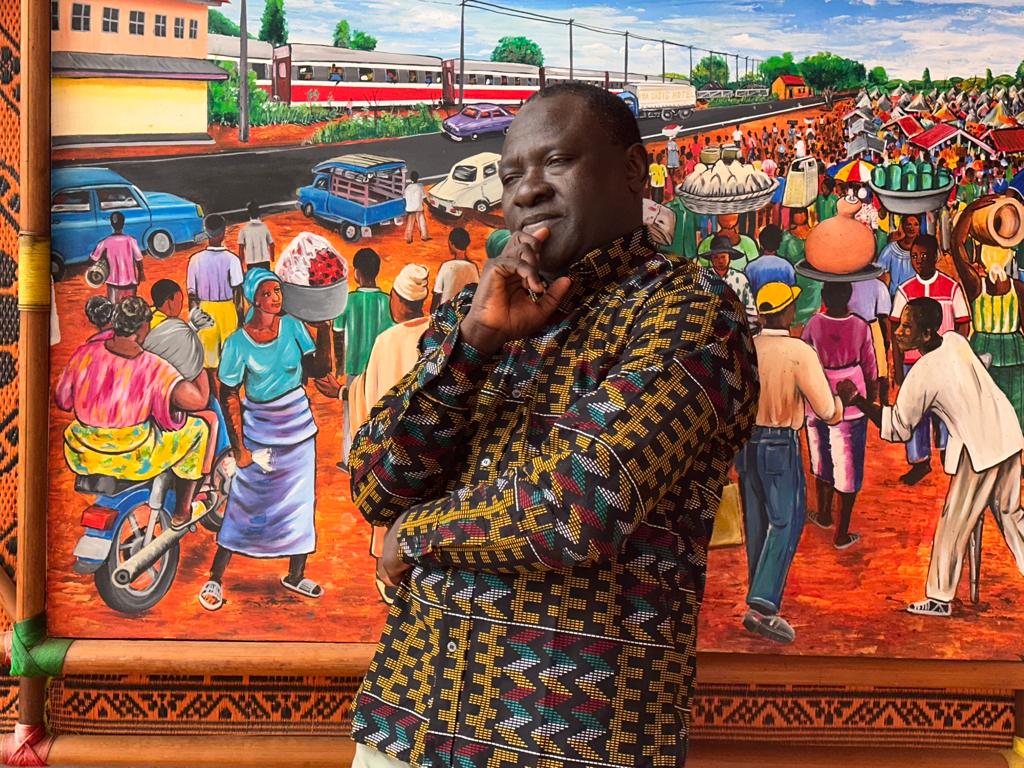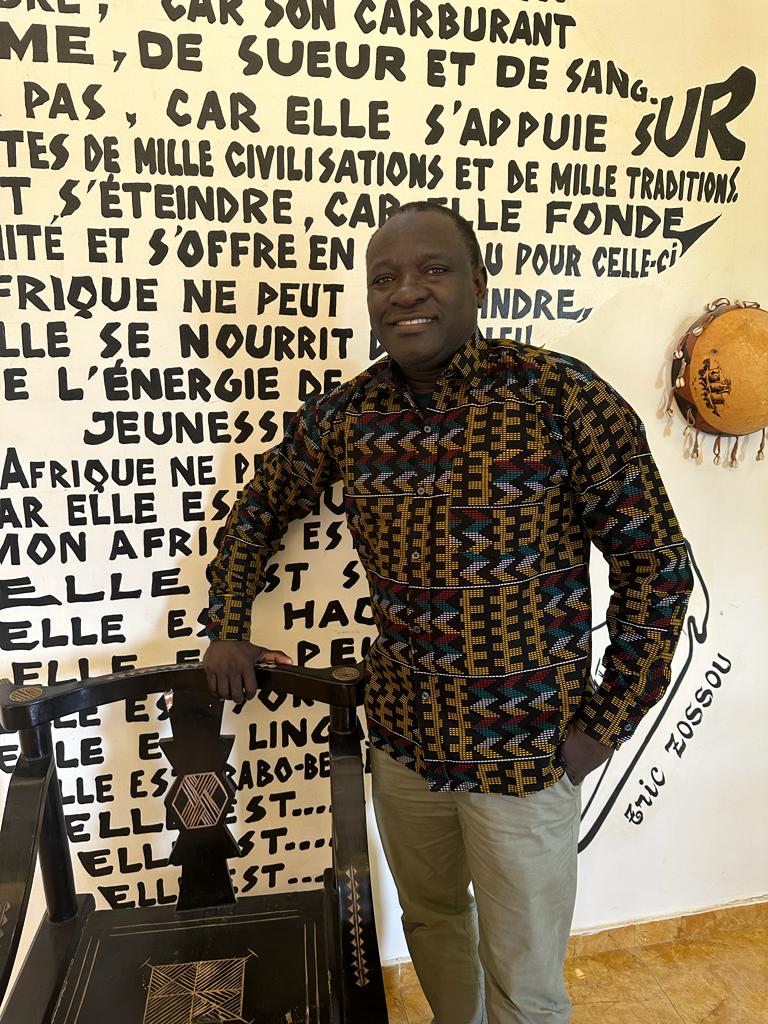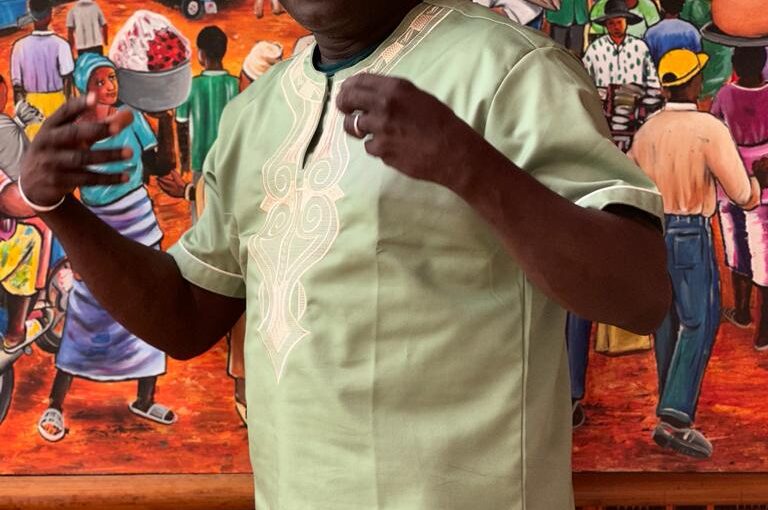Fake news or unverified information distilled on social media networks, the influence of influencers on public opinion, the race for scoops and buzzes, these are all factors exacerbating the uncontrolled effects of the democratisation of the dissemination of and access to information in the digital age. The countries of the Sahel, which also lack regulatory frameworks, have to cope with this flow of information and its manipulation by various players and increasingly with information warfare.
All these are against a backdrop of internal political uncertainties, tensions, security threats and diplomatic escalations. Recently, false information almost sparked off riots in Mali and other countries in the region, against a backdrop of the fight against terrorism and challenges to foreign military presence. Against this backdrop of threats to security, stability and the democratic gains that have been made, Trumpet Newspaper, spoke to Dr. Bakary Sambe, the Regional Director of the Timbuktu Institute, a regional think tank based in Bamako, Dakar and Niamey. His organisation has just set up an Observatory of Social Networks in the Sahel and plans to launch a major initiative to train journalists and online media to combat this scourge.

Trumpet— Dr.Bakary Sambe, in a recent study you conducted in 7 countries in the Sahel and Lake Chad Basin, you drew attention to this phenomenon. Can you go back over to this context?
Dr. Sambe… This perception study conducted by the Timbuktu Institute was a world first, focusing on the Sahel by interviewing more than 4,000 Sahelians simultaneously in 7 countries (Mali, Niger, Burkina Faso, Mauritania, Cameroon, Senegal and Chad) using the CAP (Knowledge, Attitudes and Practices) method. The study measured the perceptions of the people of the Sahel, focusing on misinformation and the manipulation of public opinion through various media, including digital media. Taking place against the backdrop of a serious health crisis coupled with socio-economic anguish, the survey was based on technological means of data collection and processing on a platform designed entirely by African engineers, while making ample room for qualitative approaches to capture endogenous specificities beyond mere statistics.
Trumpet–What were the overall trends, especially in terms of people’s trust in the media and political authorities?
Dr. Sambe— As well as confirming the trends seen at the start of the pandemic, in particular Africa’s surprising resilience during the first wave, the study established the unquestionable plebiscite of the audiovisual media, with Sahelians showing a high level of confidence in the written press. Adopting a differentiated approach, taking into account the specific characteristics of rural and urban areas, the study highlighted the importance that Sahelians attach to religious and traditional leaders as vectors of credible information, far ahead of the highly contested state media and official communication channels, whether national or international.
This means that, from now on, the region’s governments will increasingly face challenges to official information and information from international organisations such as the UN and international partners such as the European Union, especially the French media, which have been perceived as distilling partisan information. For example, only 32.5% of Sahelians surveyed said they had a certain amount of confidence in the government authorities, even when it came to health information about the COVID-19 pandemic.
Trumpet—, How much trust was placed in the media as information vectors in a context marked by the dominance of social networks?
Dr. Sambe… It’s true that between 2011 and 2018, the rate of Internet used is more than doubled on our continent as a whole, rising from 13.5% to 28%. But there is a paradoxical attitude towards social networks among the people of the Sahel. While they are increasingly seen as alternative media and a space for freedom in relation to official regulated information, there is a certain mistrust of information that is disseminated on them. The statistics are categorical even though more people in the Sahel trust television (86%), radio – which has become much more democratic, even in remote areas, enjoy a high level of trust. Some 84% of Sahelians have confidence in radio. However, the rate of connectivity has risen to over 360% in the last decade, and smart phones have become a widespread means of accessing information.
Trumpet—, Are there disparities in this respect, and what are the consequences for our countries?
Dr. Sambe– According to the study, more men, young people and urban dwellers get their information from the Internet and messaging applications. It would seem that the gender dimension of horizontal inequalities is also reflected in terms of access to online information. Women and people living in rural areas and the elderly make only modest use of it. The paradox is that rumours, for example, are more likely to spread in rural areas than previously among less educated populations with less capacity for discernment and critical questioning in the face of disinformation companies. This is the effect of applications such as WhatsApp, which do not require a high level of literacy to use. The most worrying aspect is that the majority of people in the Sahel appear to be incapable of quickly detecting false information.
In addition to gender disparities, there is the question of educational level. The study clearly showed that educated people are better able to detect false information, while access to the Internet is becoming more widespread with applications that do not require a certain level of education to master. This false information is often aimed at young and vulnerable audiences, targeted directly on their smart phones. The development of an online press in perpetual search of buzz and economically vulnerable accentuates the phenomenon. This represents a real threat to stability and democratic gains in the Sahel.

In Mali and other Sahelian countries, we seem to be seeing signs of real information war in the context of rivalries between foreign powers.
The Sahel has recently become a testing ground for all forms of influence communication. In the context of insecurity and political instability, disinformation takes many forms and hides behind many well targeted communication campaigns. The period of transition with the rise of various forms of contestation of dominance against the backdrop of diplomatic escalation and the war of positioning of new powers, is particularly conducive to this phenomenon. But by stepping up the information war, we are playing with fire.
The situation in Burkina Faso is worrying, with a rise in inter-community conflicts which, as in Mali could spread throughout the region. The fight against disinformation is an issue of security and stability for the countries of the Sahel. In times of crisis and public anxiety, attempts to manipulate public opinion via social media networks and the various mediums can compromise public policies and credibility of institutions. This represents a serious threat to the viability of states, the democratic system, peace and security in the Sahel.

